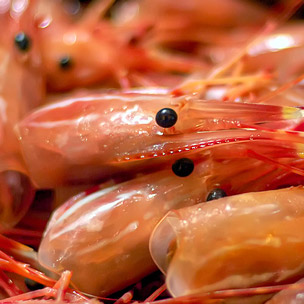May 8, 2014 — Researchers at Harvard University’s Wyss Institute for Biologically Inspired Engineering have developed a revolutionary new alternative to petrochemical-based plastics. Using chitosan — the same material found in the shells of shrimp and other crustaceans — the team has developed a process for creating a fully degradable bioplastic. The discovery has the potential to make large-scale manufacturing of a wide range of everyday objects — from toothbrushes to televisions — more sustainable. “There is an urgent need in many industries for sustainable materials that can be mass produced,” said Don Ingber, founding director of the Wyss Institute and a lead researcher on the project. “Our scalable manufacturing method shows that chitosan, which is readily available and inexpensive, can serve as a viable bioplastic that could potentially be used instead of conventional plastics for numerous industrial applications.” Photo courtesy of Phu Thinh Co (Flickr | Creative Commons)
Ensia shares solutions-focused stories free of charge through our online magazine and partner media. That means audiences around the world have ready access to stories that can — and do — help them shape a better future. If you value our work, please show your support today.
Yes, I'll support Ensia!
